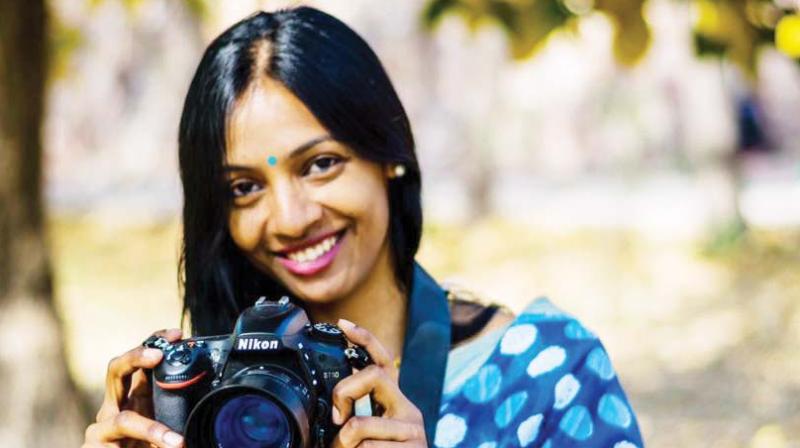A period' of challenges

Writer, single mother and alumni of Miranda House, Delhi; Pallavi Barnwal is a woman who voices out her opinion on topics that matter to her. Menstruation is something that she feels strong about. She saw that many women in the workplaces did not have access to sanitary napkins and had to step out of their office, while menstruating, in search of a sanitary napkin. So, she conducted a survey which showed that women do not get the required assistance they need when they are on the period. Through this survey, she wants organisations and corporate offices to give women the access to sanitary napkins when they are on their period.
Periods or menstruation is something that is very common. Yet, to this day, it is considered a taboo in the country. More and more women are entering the workforce and when this monthly cycle ticks, it throws them into a frenzy. This mother of a five- year-old wants corporate offices to look into this matter seriously and not just push it under a rug. The saying ‘Necessity is the mother of invention’ holds a great deal of truth as only when the need arises, will something be done about it. Having worked in the private sector for the past 10 years, Pallavi Barnwal takes us through what inspired her to do this survey. She says, “There were two particular incidents that led me to write about this topic. I was the serving the second last day of my resignation and I got my periods. And since I go through menstrual cramps, the first thought was to apply for a sick leave. But, as per the contract, I did not get the permission. While commuting to work, I wondered if such issues bother women as well.” Being a writer as well, Pallavi always believed in voicing her opinion. “Before confirming this, I wanted to affirm it with the group of women belong to my age group. When 100 women voice their opinion, we can’t go unheard. In addition to doing this survey, I was also talking to NGOs to make this into a full fledged campaign.” This campaign would encourage organisations to place sanitary napkins in their first aid boxes. This simple act would help a lot of women in the long run. This single mother of one further adds, “The survey showed that 60 percent of women did not have the access to sanitary napkins, 60 percent also said they had gotten their periods during office hours and almost 50 percent faced menstrual cramps during the periods. Last, I also wanted them to talk about the difficulties they faced during their periods.”
Pallavi does not like to look at periods like a handicapped situation. But rather, a celebration of femininity. She says, “No one really knows how it happens. But, somehow we all get stuck with male managers . In this survey, women found it uncomfortable talking about their periods to male managers. I feel that they need to be sensitised and also an awareness during training and development sessions in necessary.”
In the survey, it was indicated that women have access to sanitary napkins at a cost. Pallavi also feels that the productivity of women increases as they don’t have to be worried about their period. On why periods are still considered a taboo in the country, she says, “I think it all depends on the way we are raised. As a child, my father was given a list of ration, which was needed, and sanitary napkins were written somewhere in the middle. Never at the beginning as my father had the habit of calling out the first 15-20 items on the list. The commercials advertising sanitary napkins were also something that really made all the men in the family uncomfortable.”
There is also a tradition that women are not allowed to do anything religious when on her period. This belief is what made menstruation a taboo in the country. Pallavi wants to raise her son to be a feminist, who does his own chores and also respects women. Ismat Chugtai is one Pallavi’s favourite author. “She talked about the struggles of womens education in the pre independence era. Her intense and realistic works inspire me,” signs off Pallavi.

